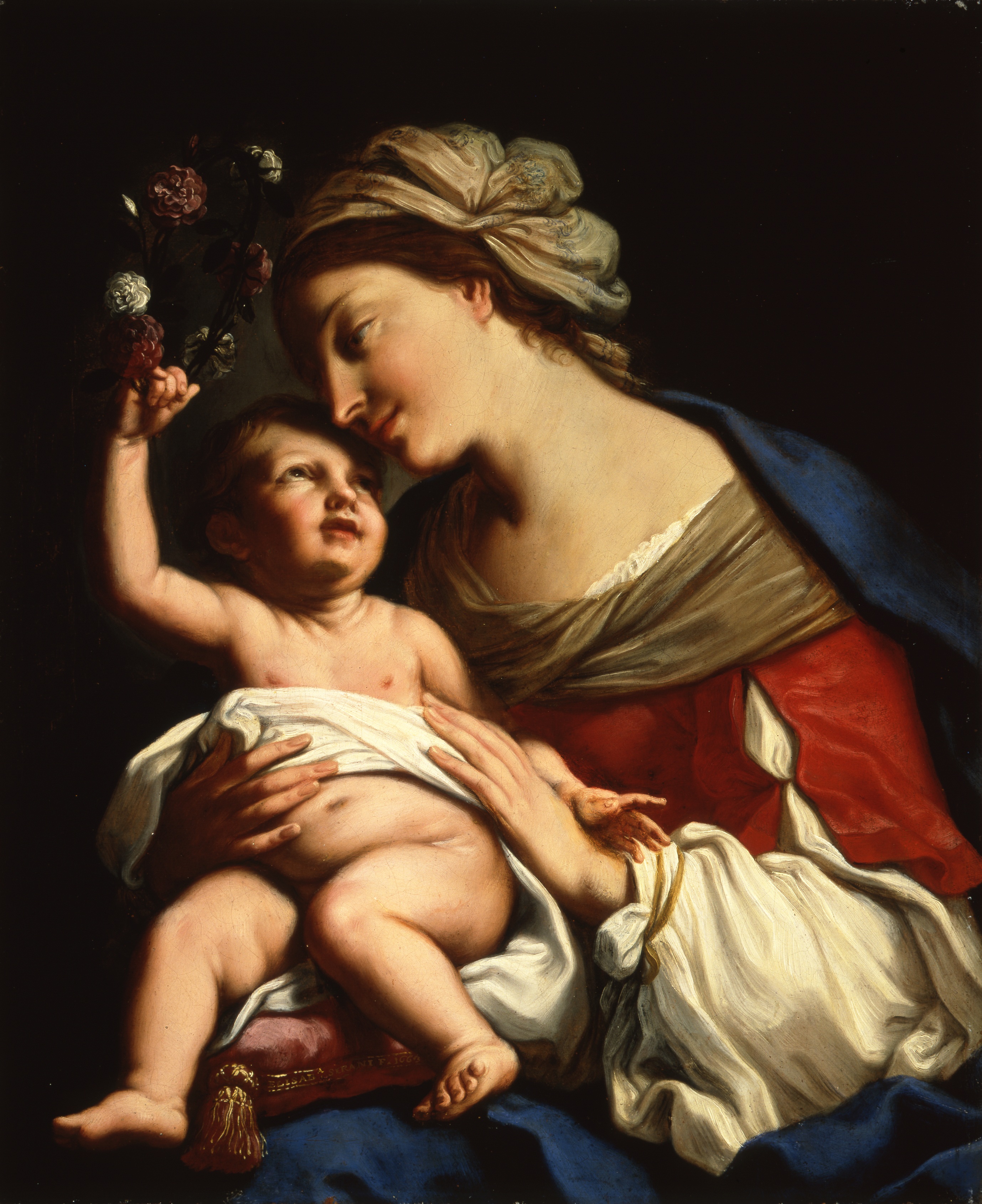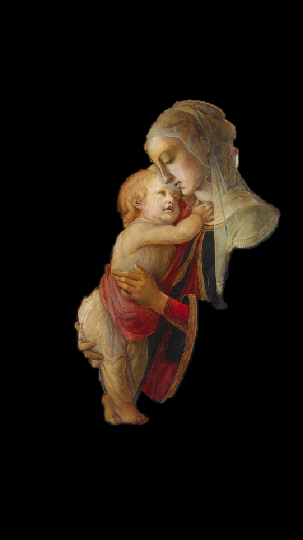Woman of Faith: Faith as Rejection: Mary of the Nativity
Fr. J. Patrick Gaffney, SMM
It is Mary of the Nativity (Lk 2:1-20) who exemplifies the “rejection” aspect of faith. Obedient to the word, faithful to the will of God, she, the Ark of the Covenant carrying the New Law, is rejected at Bethlehem.
WOMAN OF FAITH
A Christian is counter-culture.
Living the Gospel values today is considered medieval, a sign of a backward mind. When with powerful prophetic voice, the Church proclaims the Lordship of Christ, economic and political justice, the inviolable value of human life, her words are scorned, ridiculed as an unwarranted interference.
But the Good News of Jesus Christ is not an arid list of certitudes; it is a personal encounter with the enfleshed Wisdom of the Father resulting in a new vision of reality. And the Church is bound by the mandate of Christ Himself to proclaim this Truth to the entire world no matter the results of Gallup polls or the threats of persecution. Blatantly, the First World countries especially reject the voice of the Body of Christ. Yet, never can the Church be passive as the crises of modern civilization crowd in upon humankind.
The Church must, therefore, expect rejection. Did not the Lord himself tell us; “Behold, I send you out as sheep in the midst of wolves; so be wise as serpents and innocent as doves. Beware of men; for they will deliver you up to councils, and flog you in their synagogues and you will be dragged before governors and kings for my sake, to bear testimony before them and the Gentiles;” (Mt. 10:16-18).
THE CHURCH MUST EXPECT REJECTION
“Do not think that I have come to bring peace on earth; I have not come to bring peace but a sword. He who loves father or mother more than me is not worthy of me and he who loves son or daughter more than me is not worthy of me and he who does not take his cross and follow me is not worthy of me. He who finds his life will lose it and he who loses his life for my sake will find it”. (Mt 10:34-39).
Rejection has become a sign that the Church is truly proclaiming the Gospel. When her confidants are the self-righteous mighty of this world, the Church must ask herself if she is truly living and proclaiming the undiluted word of the Lord. The friends of Jesus were not the powerful leaders of the time, but “tax collectors and sinners,” the poor, the oppressed, the sick, who themselves were rejected and believed excluded from the world to come. They were poor for they were open to His Love.
And it must be the same for the Church as she proclaims the liberating message of the Reign of God; her “friends” cannot be the oppressive economic, political cartel.
THE CHRISTIAN MUST BECOME THE LIVING GOSPEL, DESPITE REJECTION
Rather, the poor and rejected must find in the Church their guardian and support and she must identify with them. The so-called “preferential option for the poor” is not an option at all; it is demanded by the Gospel itself. And it necessarily brings with it the scoffs and anger of the strong.
However, it is not an amorphous “Church” which experiences rejection; it is the individual Christian who at home, at the office, in school, in casual conversations at the supermarket, always is a living Gospel of Jesus Christ. Few people ever read the Scriptures; the Christian must be, in word and action, the living Gospel for all to read. Which means that in today’s society, the faith-filled Christian will surely know rejection.
It is Mary of the Nativity (Lk 2:1-20) who exemplifies this aspect of faith profoundly, poignantly. Obedient to the word, faithful to the will of God, she, the Ark of the Covenant carrying the New Law, is rejected at Bethlehem. “And she gave birth to her first-born son and wrapped him in swaddling clothes and laid him in a manger, because there was no place for them in the inn”. (Lk 2:7).
Mary had obeyed the word of God spoken through Gabriel; she had, although with difficulty, complied with the duty, as Luke ex- plains it, to be enrolled with Joseph at Bethlehem. Faithful to God’s word, she now experiences rejection. The “Inn” – symbol, it could be said, of the pompous, worldly- wise – rejects the Woman bearing the New Covenant of Love. There is no place in the inn for the Woman carrying Christ. Yet, the poor – the shepherds – are, in the Lucan narrative, her “friends.”
MARY’S . . .
There is no room, says the world boasting of its so-called independence from the “superstition of faith,” for the Christian proclaiming the Gospel. Not that the Christian seeks to be spurned! However, since the Gospel does not mesh with worldly values, rejection comes as no surprise. Since fidelity to the teachings of the Body of Christ is mocked by a do your own thing generation, ridicule by the worldly-wise is integral to a life of faith. It is the applause of Christ of the Christian values, not the plaudits of the world.
The Lucan Mary of the Nativity, homeless, rejected, is the sign of the cost of discipleship. She exemplifies the words of her Son who tells us that persecution is integral to following Him. (cf. Mk 10:30). Faith entails rejection by the haughty and the proud, by the “inns” of contemporary society.
. . . FAITH
Where does Mary find the strength to continued As the mystery of Her Son begins ever so slowly to unravel, her faith is surely tempted. The rejection at Bethlehem is but the first, she may well surmise, of future, even more painful refusals. How often does a Catholic, ridiculed for obedience to the church, “the pillar and bulwark of the truth” (1 Tim 3:15), wonder how long he or she can bear under the increasing peer-pressure to reject the faith? Mary of the Nativity discloses the secret of perseverance in spite of rejection.
It easily goes unnoticed that Mary is given another name in the Lucan Nativity scene; “the pondering woman”. (cf Lk 2:19). Reflecting on the message of the Angels as narrated by the shepherds, recalling the rejection by the “inn,” the birth of the beautiful Child; “she kept all these things, pondering them in her heart”. The Greek term used by the Holy Spirit is far more revealing than its English rendition, pondering. The word implies a futile attempt to “put the pieces together”.
There is no way that she can “make sense” of what has happened; no way that she, of herself, can be strong enough to face the evidently painful future. All she can do is to gaze lovingly at the Christ Child, in wonderment, in praise. She is “the pondering one,” she is the contemplative Woman. The pieces do not fit; she can only stare in amazement at this Child, the “Son of the Most High”. (Lk 1:32). Contemplative prayer, which typifies Mary, is the source of her strength to be faithful in spite of rejection, to be obedient in spite of the jibes and scoffing which will inevitably be hers as the Mother of the Lord.

Madonna and Child: painter Elisabetta Sirani: 1663
Elisabetta took over the studio of her father Giovanni Sirani in 1654-1655. This painting resides in the National Museum of Woman Arts in Washington, DC.

Madonna and Child: Italian Painter: Sandro Botticelli: 1468
This is a portion of the painting. The background has been removed, focusing on Mary and the Child Jesus. This portion of the original painting was featured in the original Queen of All Hearts magazine article on the inside pages. The original also applied a pink filter for a dramatic presentation. The Queen duplicates this image using the live painting, which resides in the Louvre, Paris, France.
Luke – better still, the Holy Spirit – is emphatically teaching us that it is impossible to live the Christian faith in the midst of this world unless we are contemplatives. We too must be ponderers of the Word. Faith can only be sustained by intimate, loving discourse with God. Since faith is a living relationship with the Lord, prayer becomes an absolute necessity for a disciple of Jesus, for relationships weaken and may even die without regular communication. Through meditative reading of His word, through the Eucharistic sacrifice, through daily gazing at the Lord, the followers of Christ find the strength to radiate the Gospel in spite of ridicule and rejection.
Return to The Queen: Articles
IT IS IMPOSSIBLE TO LIVE CHRISTIAN FAITH UNLESS WE ARE CONTEMPLATIVES
Luke – better still, the Holy Spirit – is emphatically teaching us that it is impossible to live the Christian faith in the midst of this world unless we are contemplatives. We too must be ponderers of the Word. Faith can only be sustained by intimate, loving discourse with God. Since faith is a living relationship with the Lord, prayer becomes an absolute necessity for a disciple of Jesus, for relationships weaken and may even die without regular communication. Through meditative reading of His word, through the Eucharistic sacrifice, through daily gazing at the Lord, the followers of Christ find the strength to radiate the Gospel in spite of ridicule and rejection.
Rejected by the “inn” because of her obedience of faith, Mary of the Nativity remains faithful by “pondering these things in her heart”. She is the example for all Christians. Living in the atmosphere of Mary as Saint Louis de Montfort advocates, following her example, open to her maternal influence, the modern Christian finds the divine energy to be – in spite of rejection by the world’s standards – the living proclamation that Jesus Christ is Lord!


